
This article is more than
1 year old
BBC Culture film critics Nicholas Barber and Caryn James pick their highlights of the year so far, including a vision of a war-torn America, a wonderfully creepy nun horror, and an outrageous Kristen Stewart crime thriller.
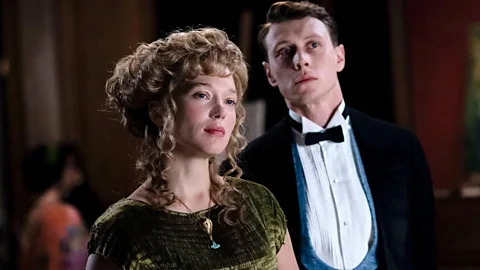
1. The Beast
I came out of The Beast thinking "This is the weirdest film I've seen since Poor Things", but also that I loved it. Bertrand Bonello has created an audacious, imaginative film about love, memory, pain and artificial intelligence that roams over three time periods, each featuring versions of Gabrielle and Louis, played by Léa Seydoux and George MacKay. In a stark and chilling 2044, AI can be used to erase feelings of pain, including a broken heart, but that means reexperiencing those memories to erase them. Gabrielle begins the process, which leads her to Belle Epoque Paris, where she is unhappily married and George is an unsettling attraction, and Los Angeles in 2014, where she is housesitting and he is her stalker. Careening through the time periods, The Beast is the kind of head-spinning story that may not piece together neatly at first, but is so filled with unexpected turns and set pieces – such as Gabrielle and Louis caught in the flooded basement of a doll factory in Paris – that it is constantly exhilarating. (CJ)
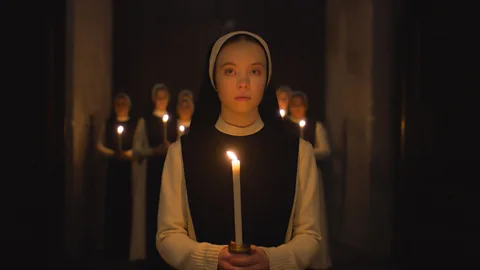
2. Immaculate
Sydney Sweeney (also the film's producer) stars in this wonderfully creepy horror movie about an American novice nun who learns that all is not as it seems in an Italian convent. Immaculate could easily have been a trashy nunsploitation B-movie, but it's (mother) superior in many ways, from the bold commentary on men's treatment of women to cinematography that recalls Renaissance religious art. What's most striking about the film, though, is its willingness to take things to jaw-dropping extremes. There are countless moments when you're watching it and you think, "No... they're not going to go there... they wouldn't..." And then they do. (NB)
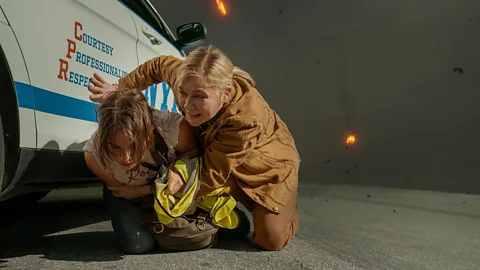
3. Civil War
Reactions to this film were almost as polarised as the divided country it depicts, a sure sign that Alex Garland hit a nerve with his vision of a near-future US that has descended into civil war under a fascist president. Kirsten Dunst is at the centre as a photojournalist who, along with her colleagues – played by Wagner Moura, Cailee Spaeny and Stephen McKinley Henderson – put themselves at great risk to witness and report the action around them. Garland makes that action visceral and explosive, from guns and tanks on the streets of Washington DC to violent one-on-one encounters in the supposedly calm countryside. But the most harrowing aspect of the film is how acutely and convincingly he positions the fiction as a hairsbreadth away from the real world around us. Some viewers complained that Garland didn't set up a more pointed political conflict, but to me the film is chilling enough in its vision of an all-too-credible war-torn future. (CJ)
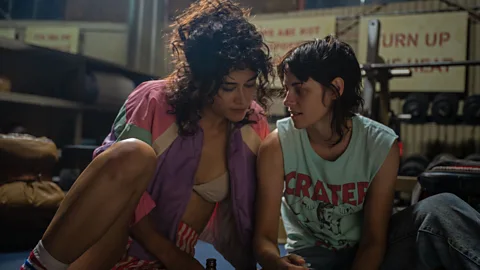
4. Love Lies Bleeding
Kristen Stewart's character has a miserable life at the start of Love Lies Bleeding, as Kristen Stewart's characters so often do. She manages a dingy gym in a small town, she avoids her gangster father (Ed Harris), and she tries in vain to persuade her sister (Jena Malone) to end her abusive marriage. But everything changes when a charismatic drifter played by Katy O'Brian stops off on her way to a body-building contest in Las Vegas. Sparks fly, and the fireworks of sweaty sex, shocking violence and all-round craziness keep exploding. A stylish, blackly comic lesbian film noir from Rose Glass, the British director who made her feature debut with acclaimed horror Saint Maud, Love Lies Bleeding is the most fun and imaginative indie crime thriller since Good Time (2017), which happened to star Stewart's Twilight co-star, Robert Pattinson. (NB)
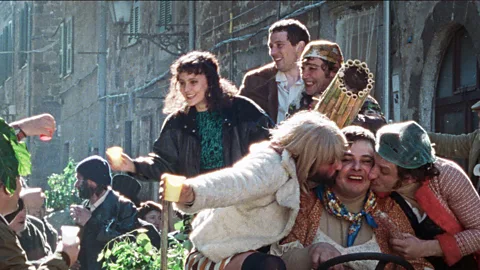 Neon
Neon
5. La Chimera
Alice Rohrwacher's films – like 2018's great, fabulistic Happy as Lazzaro – are tinged with magic realism. La Chimera, set in Tuscany in the 1980s, is among her best as it walks the line between richly-textured realism and dreams. Josh O'Connor stars as Arthur, an Englishman who works with a band of local Italian graverobbers to find ancient artifacts in Etruscan tombs to sell on the black market. Seedy looking and sad, Arthur is reeling from losing his love, Beniamina. As one character puts it, he is searching in the underground for "a door to the afterlife" and at times seems to find it. Rohrwacher has an eye for finding beauty in ruins, whether the big crumbling house where Beniamina's mother (Isabella Rossellini) lives, or Arthur himself. The plot keeps moving, with danger, crime and escapes from the police, but the film is shaped by O'Connor's poignant, low-key but charismatic performance and Rohrwacher's elegant vision, lushly filmed by the great cinematographer Helene Louvart. (CJ)
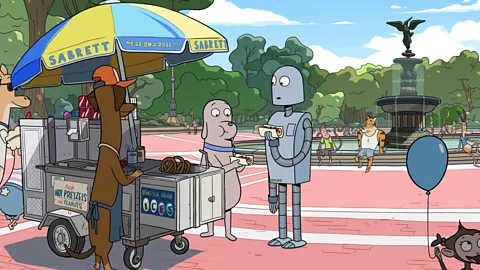
6. Robot Dreams
Robot Dreams is a cartoon like no other. It's a Spanish-French production, and yet it's a loving homage to the vibrancy of 1980s New York. It's animated in a 2D picture-book style, and yet it's bursting with tiny details. It doesn't have any dialogue, and yet it's peppered with wit and wisdom. It's all about a dog and a robot, and yet it's a richly human exploration of loneliness and companionship. Adapted from Sara Varon's graphic novel and directed by Pablo Berger, this Oscar-nominated gem tells the enchanting tale of two friends who find heartwarming joy in each other's company – and then have to work out whether they can learn to live apart. (NB)
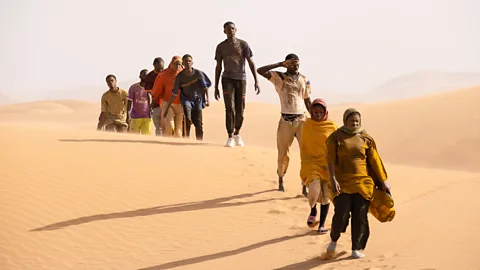
7. Io Capitano
Few migrant dramas are as stirring, humane and suspenseful as this one, about the treacherous journey of a 16-year-old boy as he leaves Senegal in search of a better life. Matteo Garrone (Gomorrah) won the award for best director at the 2023 Venice Film Festival for the film, and his non-professional star, Seydou Sarr, won best young actor as the fictional Seydou, a gentle boy determined to make it to Italy along with his cousin, Moussa. Each stage of the boys' travels presents a different danger. They set out across the Sahara with a group of other migrants, and when one woman dies, Seydou sees her gliding through the air, as if the reality is too much to take in. In Libya he is imprisoned and tortured. In the final stages he must pilot a boat full of migrants toward Italy, giving the film its title, Io Capitano (I Captain). With relatively few words, Garrone and Sarr create an eloquent, piercingly real film about one person, whose story resonates with the situation of millions around the world. (CJ)
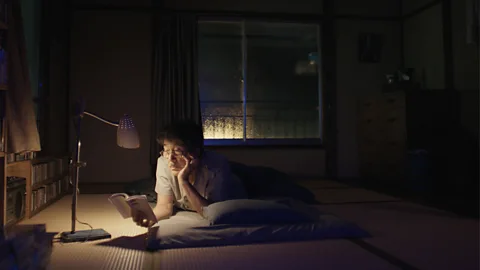
8. Perfect Days
You wouldn't necessarily think that someone who cleaned public toilets for a living had found the secret to happiness, but Wim Wenders' Perfect Days makes a strong case for the idea. A Japanese-language film from the German writer-director, this hypnotic character study follows Hirayama (Kōji Yakusho) around Tokyo as he carries out his janitorial duties, waters his plants, reads novels, listens to American rock music and takes photos of trees, all with the same quiet diligence and pride. There are hints here and there about how Hirayama's life has changed, and how it might change in the future, but the core of the film is a documentary-like meditation on the serenity of an existence stripped to its essentials. Also, the public toilets themselves are so well designed that Perfect Days could well turn them into tourist attractions. (NB)